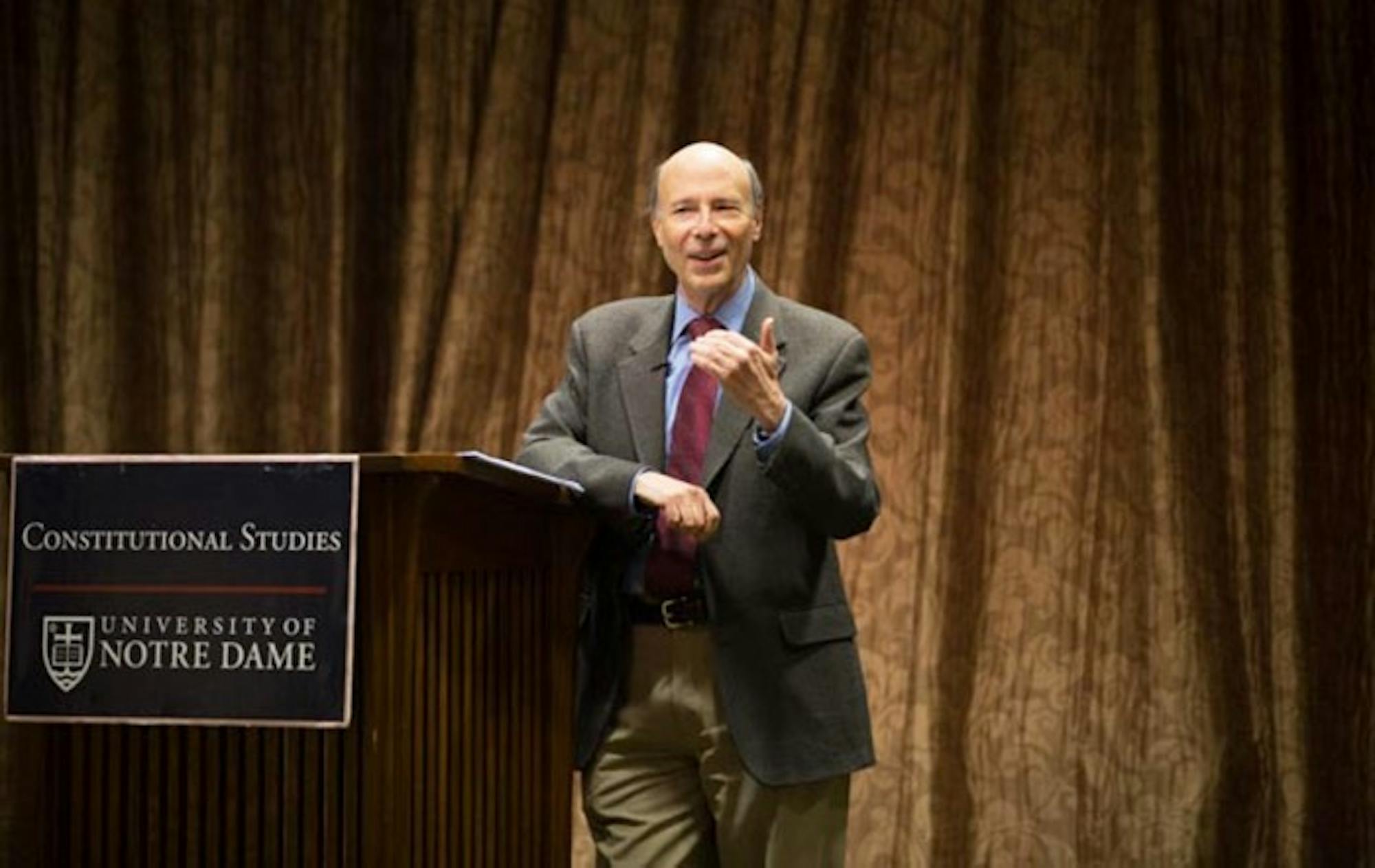
Claremont McKenna professor and former federal government administrator Mark Blitz explored the question, “Can liberty be conserved?” on Monday afternoon in Geddes Hall.
To begin his talk, Blitz said it is crucial to understand precisely what liberty is before we can start to find a way of preserving it.
“Liberty is the authority to direct oneself and to not be constrained in directing oneself,” Blitz said.
In order to fully comprehend this definition, it is important to note that liberty is both natural and equal, Blitz said. The equality of liberty means everyone has an equal authority to direct themselves. He said that by nature, liberty is not a manifestation of arbitrary cultural preferences formed by humans but instead a fundamental, natural fact of life independent of other factors.
“It’s not a throwaway term; it’s not a meaningless term. It’s really a fundamental term,” Blitz said, in reference to natural rights.
Blitz said that the independence essence of natural rights is crucial to the concept of liberty.
“We don’t make them, create them, or invent them, but that, in some sense, they are permanently there to be seen and discovered,” Blitz said.
However, Blitz said, natural rights are often ignored and trampled by man-made prejudices.
“As with many self-evident things, you can’t see them if you are somehow blinded or wearing masks or looking through gauze," Blitz said. "You can see them clearly only if the blinders of class preference or ethnic preference or group preference or traditional ways or mysticism or unquestionably obedient religious views are taken away."
According to Blitz, the Enlightenment was responsible for removing many of these blinders and espousing the cause of natural rights. Despite the fact that the original backing of natural rights transcended partisan lines, it has became far more of a one-sided issue than it should be today, Blitz said.
Individual liberty has become more strongly associated with modern conservatism than liberalism, at least in the United States, but natural rights should draw its support from common ground, Blitz said.
“Conservatism should conserve liberalism, properly understood,” Blitz said.
After defining natural rights, Blitz examined the ways in which a society can protect and promote liberty.
Citing Aristotle, Blitz said that good character and a proper set of virtues are the foundations of successful liberty.
“You can’t use your liberty effectively and therefore not well, if you don’t have good character,” he said.
In particular, Blitz said, responsibility is one of the greatest virtues and character traits in this regard because it balances the potential misuses of liberty.
“Responsibility is taking charge and seeing things through to a successful conclusion,” he said.
While a free society requires responsibility, it paradoxically produces it, as well, because liberty encourages citizens to remain true to their commitments and duties.
Blitz concluded his lecture by saying that liberal democracies are not morally lost, as some claim, but help develop the human soul. Following the lecture, he opened the floor up to questions.













